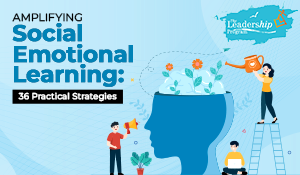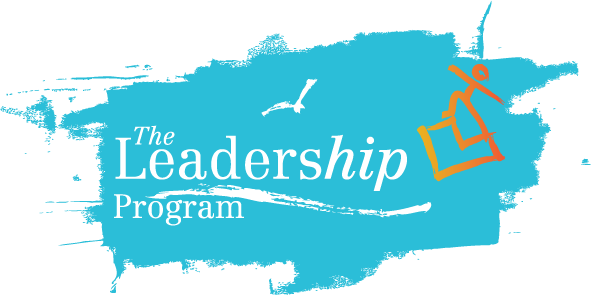In an era where emotional intelligence is just as important as academic knowledge, integrating Social Emotional Learning (SEL) is more crucial than ever. Here's a guide on the fundamentals of SEL and 25 practical ways to incorporate it into everyday life.
The Pillars of SEL: What are They?
SEL revolves around five key competencies: self-awareness, self-management, responsible decision-making, relationship skills, and social awareness. Let's dive deeper into each of these competencies and provide practical examples of how to implement them.
1. Self-Awareness: Discovering Your Inner World
Self-awareness involves the capacity to understand one's own emotions, thoughts, and values, and how they influence behavior. It's about recognizing personal strengths, limitations, and nurturing a sense of self-confidence. Ways to cultivate self-awareness include:
- Understanding Personal and Social Identities: Recognize your roles in different social settings and understand how they intertwine.
- Embracing Cultural and Linguistic Assets: Appreciate your unique cultural background and language skills.
- Recognizing Emotions: Practice identifying and naming your emotions to better understand your reactions to different situations.
- Upholding Honesty and Integrity: Make decisions that align with your personal values.
- Linking Feelings, Values, and Thoughts: Reflect on how your feelings influence your thoughts and actions.
- Challenging Prejudices and Biases: Identify and confront your own biases and prejudices.
- Experiencing Self-Efficacy: Undertake tasks and projects that demonstrate your ability to effect change.
- Fostering a Growth Mindset: Embrace challenges as opportunities for personal growth.
- Pursuing Interests and Purpose: Identify and engage in activities that bring you joy and give a sense of purpose.
2. Self-Management: Harnessing Personal Power
Self-management involves regulating one's emotions, thoughts, and behaviors effectively in different situations. It also includes setting and achieving goals, delaying gratification, and managing stress. Ways to strengthen self-management include:
- Practicing Emotion Regulation: Develop strategies to manage and express emotions in a healthy way.
- Utilizing Stress-Management Strategies: Learn relaxation techniques such as deep breathing, meditation, and yoga.
- Exhibiting Self-Discipline and Self-Motivation: Challenge yourself to complete tasks without external prompts or rewards.
- Setting Personal and Collective Goals: Set achievable goals for personal growth and group projects.
- Applying Planning and Organizational Skills: Use tools like calendars and task lists to manage time effectively.
- Showing Initiative: Take risks in pursuing your goals, even in the face of potential failure.
- Developing Personal and Collective Agency: Believe in your capacity to influence your life and the community around you.
3. Responsible Decision-Making: Shaping Your World With Care
Responsible decision-making involves making constructive choices about personal behavior and social interactions. It also includes evaluating the consequences of various actions for personal, social, and collective well-being. Steps to responsible decision-making include:
- Cultivating Curiosity and Open-Mindedness: Embrace new ideas and perspectives.
- Identifying Solutions for Personal and Social Problems: Engage in problem-solving activities at home, school, and in the community.
- Making Reasoned Judgments: Analyze information, data, and facts before making decisions.
- Evaluating the Consequences of Actions: Consider the potential impact of your actions on yourself and others before you act.
- Applying Critical Thinking Skills: Utilize critical thinking both in academic contexts and real-life situations.
- Promoting Personal and Community Well-Being: Participate in activities that enhance your well-being and that of your community.
- Assessing Interpersonal, Community, and Institutional Impacts: Consider the broader implications of personal and collective decisions.
4. Relationship Skills: Building Bridges
Building healthy relationships involves clear communication, active listening, cooperation, conflict resolution, and leadership. It also includes the capacity to seek or offer help when needed. Strategies to improve relationship skills include:
- Developing Positive Relationships: Build and maintain friendships and professional relationships that are reciprocal and respectful.
- Practicing Teamwork and Collaborative Problem-Solving: Participate in group activities that require collaboration and compromise.
- Resolving Conflicts Constructively: Learn conflict resolution strategies and apply them in your interactions.
- Resisting Negative Social Pressure: Stand up to peer pressure and make decisions based on your values.
- Showing Leadership in Groups: Take on leadership roles in groups, and support others to do the same.
- Seeking or Offering Support: Don't hesitate to seek help when needed or offer help when you can.
- Advocating for Others: Stand up for the rights of others, especially if they are unable to do so themselves.
5. Social Awareness: Embracing the World Around You
Social awareness involves understanding the perspectives of others, empathizing with people from diverse backgrounds, and recognizing social norms. Here are ways to enhance social awareness:
- Practicing Empathy and Compassion: Try to understand other people's feelings and experiences.
- Recognizing Strengths in Others: Acknowledge and appreciate the unique skills and qualities of people around you.
- Showing Concern for Others' Feelings: Respond to others' emotional states with kindness and understanding.
- Understanding Diverse Social Norms: Learn about different cultural practices and social norms.
- Recognizing Situational Demands and Opportunities: Understand how different settings require different behaviors and responses.
- Understanding Organizational Influences on Behavior: Learn how structures and systems can impact individual and group behavior.
SEL is not just a set of skills; it's a lifelong journey. By implementing these strategies, we can cultivate a more understanding, resilient, and compassionate society.




Comments [0]
Click here to read/write comments